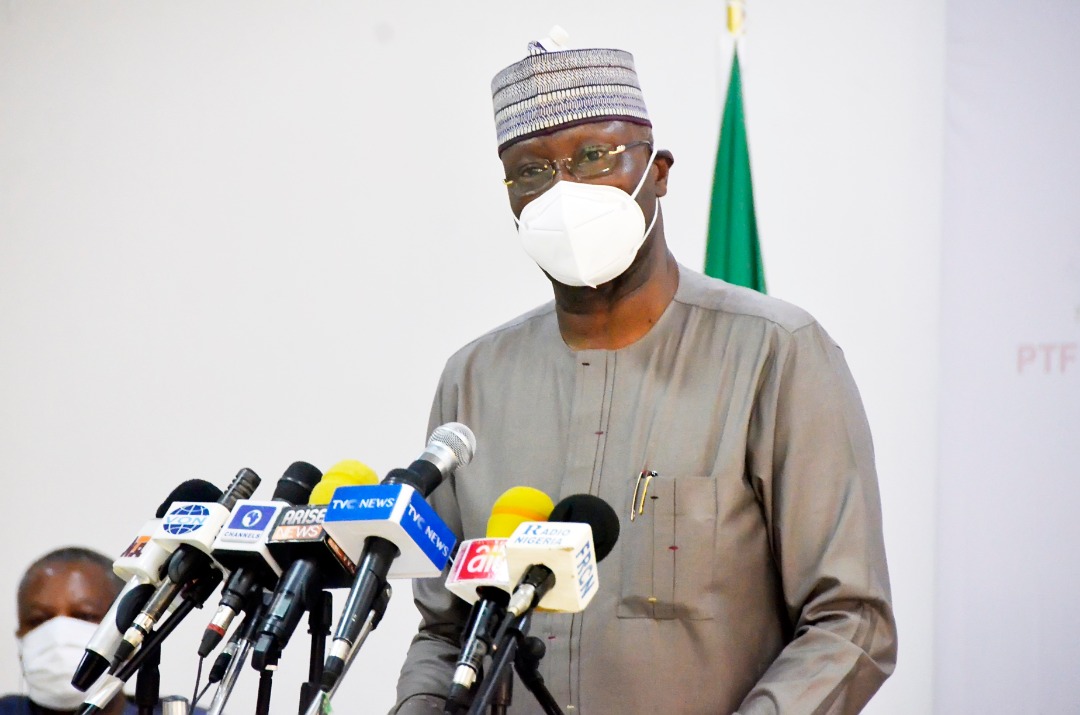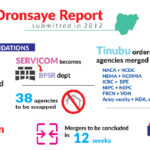The Federal Government has inaugurated two sub-committees for the implementation of government’s white papers on restructuring and rationalisation of parastatals, agencies, commissions, created after submission of the report on restructuring.
The 11-member each two sub-committees are Government whitepaper on Oronsaye report; and review of new parastatals, agencies and commissions created after the submission of the above report from 2014 and were given six weeks to complete their assignments.
- Orosanye report: FG scraps NAPEP, Fiscal Commission
- Scrap, merger of FG agencies: Oronsaye report stirs the hornet’s nest
The white paper is also known as the ‘Orosanye Report’ named after a former Head of the Civil Service of the Federation (HoCSF) and Chairman of the Committee, Steve Oronsaye.
The panel was set up under the administration of former President Goodluck Jonathan in August 2011, submitted the report in April 2012.
The 800-page report recommended the reduction of statutory agencies of government from 263 to 161.
The Secretary to the Government of the Federation (SGF), Mr. Boss Mustapha, inaugurating the committees on Thursday in Abuja, said the event had finalised what most Nigerians may have considered a seemingly intractable challenge in the country’s drive to evolve a sustainable governance.
Mustapha, represented by the Head of the Civil Service of the Federation (HoCSF), Dr. Folasade Yemi-Esan, said that the event would also serve as architecture for effective service delivery by the public service.
“As you are aware, various administrations have been concerned with different aspects of governance of the public service of Nigeria. And one of these areas have always been the increasing cost of governance without seeming concurrent productivity in the quality-of-service delivery.
“This had led to a number of reforms, some of which achieved their objectives, others did not while some were either truncated or not implemented at all,” he said.
He, however, expressed delight that some of the recent reforms and strategies being put in place had begone to show the potential of yielding desired results.
He said “Worthy of immediate mention is the Federal Civil Service Strategy and Implementation Plan (FCSSIP) 2021 to 2025 and its associated Revised Public Service Rules (PSR) as well as the introduction of Performance Management System (PMS).”
He said that it was in a bid to address this, among others, that the committee on the “Restructuring and Rationalization” of Federal Government Parastatals, Commissions and Agencies was constituted on 18 August 2011 and submitted its report on April 16, 2012.
He said, “The report recommended that of the 541 Statutory and Non-Statutory Federal Government Parastatals, Agencies and Commissions, 263 statutory agencies should be reduced to 161, 38 agencies should be abolished. 52 agencies should be merged, and 14 should revert back to Departments in Ministries.
“Subsequently, the white paper on the report was issued and published in March, 2014 and was followed by the white paper implementation committee inaugurated in May, 2014.”
He said that however, for a number of reasons, most of which were anchored on political expediency, the White paper not only rejected a large number of the recommendations, it also merely noted an equally greater number of others.
He said, “But again even those accepted were not implemented. Thus, Nigeria has continued to suffer under a daily increasing weight of a high cost of governance under-pinned by high personnel and overhead costs to the detriment of having adequate resources for development projects. For a long time now, the country has been struggling to make sure that at least 30 percent of its annual budget goes into capital projects.
Responding, a former HoCSF, Ms Amal Pepple, who head the committee, thanked the Federal Government on behalf of other members for the opportunity giving to them to serve the nation.
She said the challenge given to them to provide solution has been lingering for a long time.
She, however, pledged to deliver it within the six weeks given to them by the Federal Government.
The second committee is also chaired by another former HoCSF, Mr Goni Aji.

 Join Daily Trust WhatsApp Community For Quick Access To News and Happenings Around You.
Join Daily Trust WhatsApp Community For Quick Access To News and Happenings Around You.


